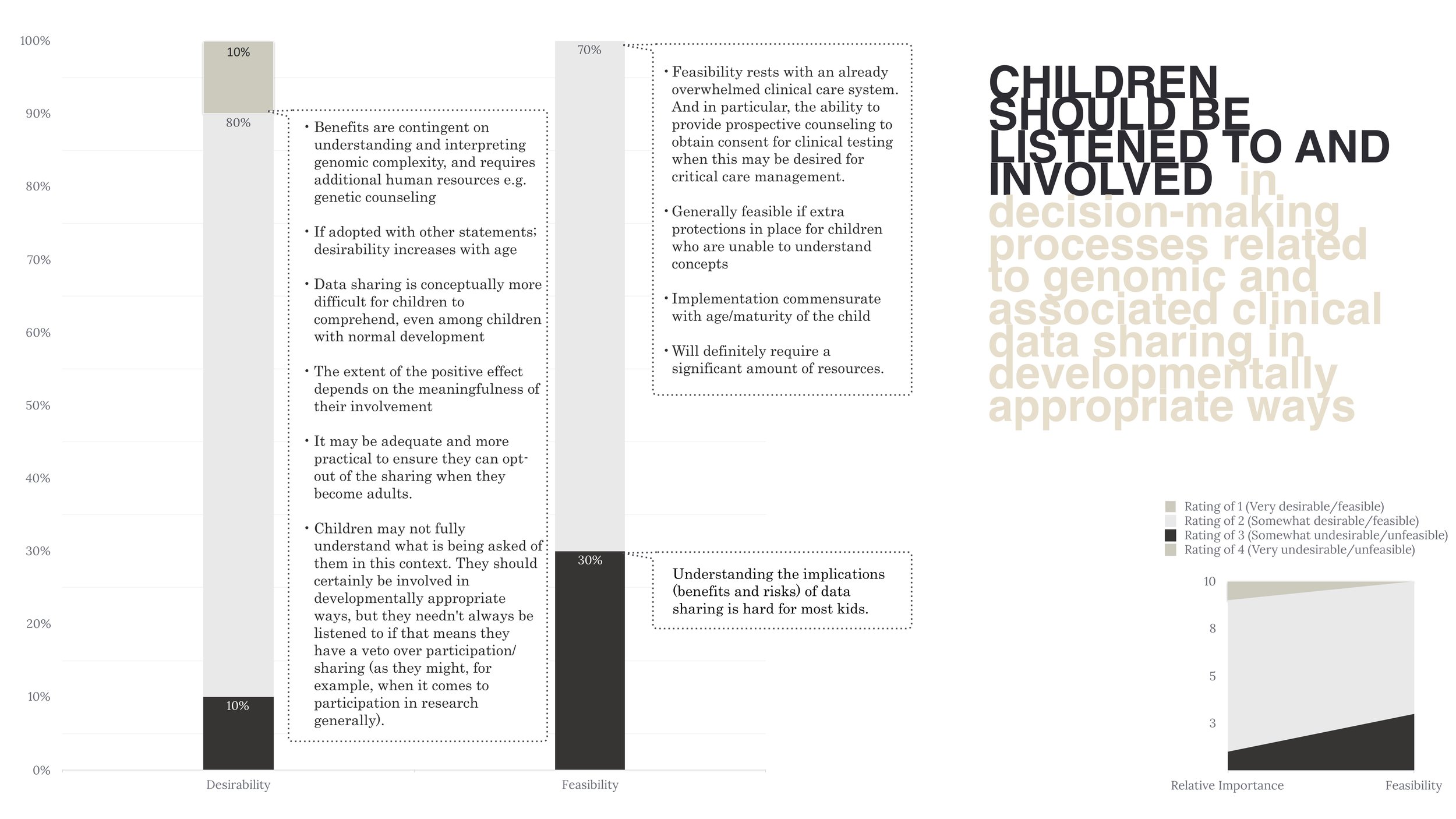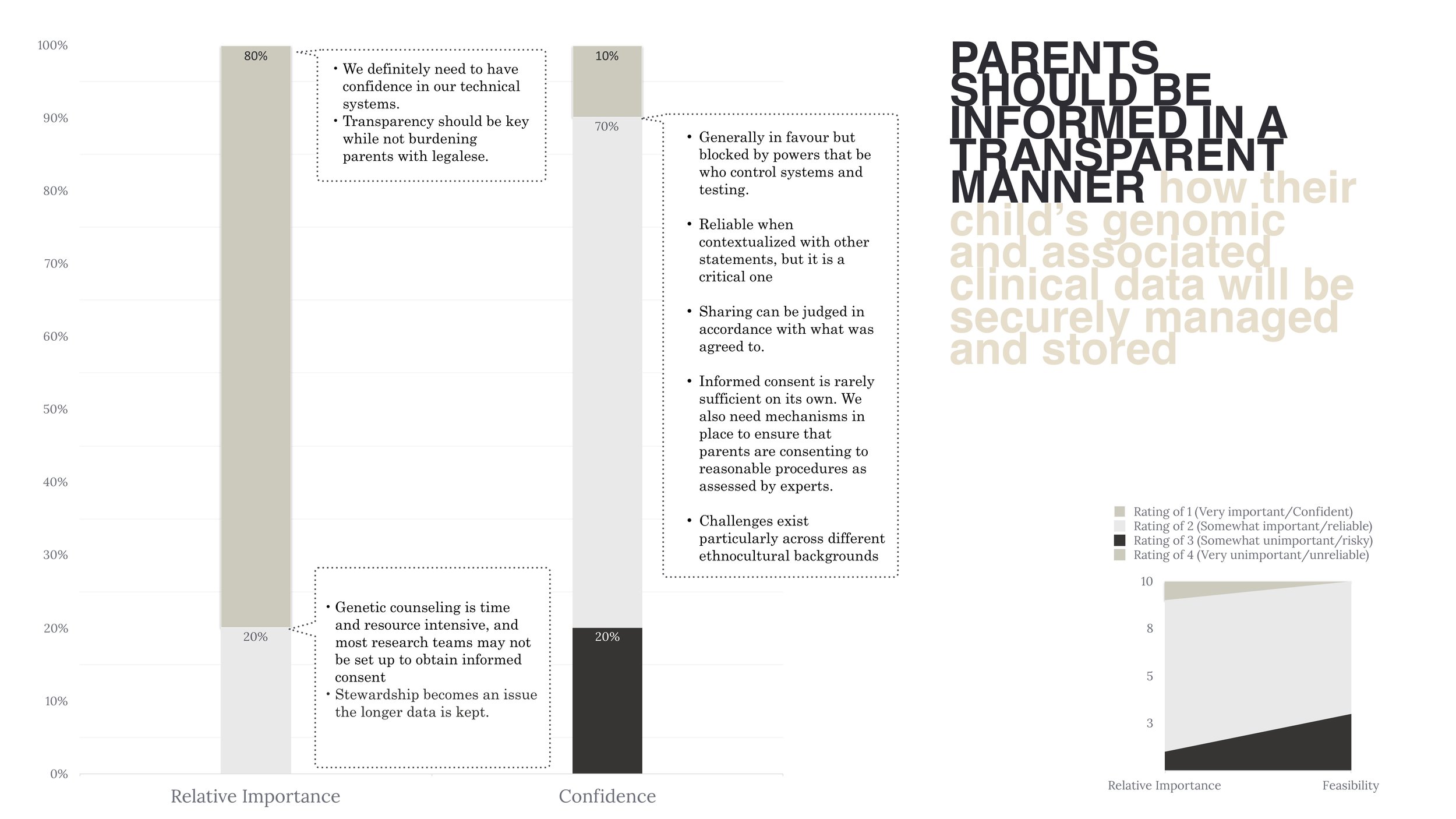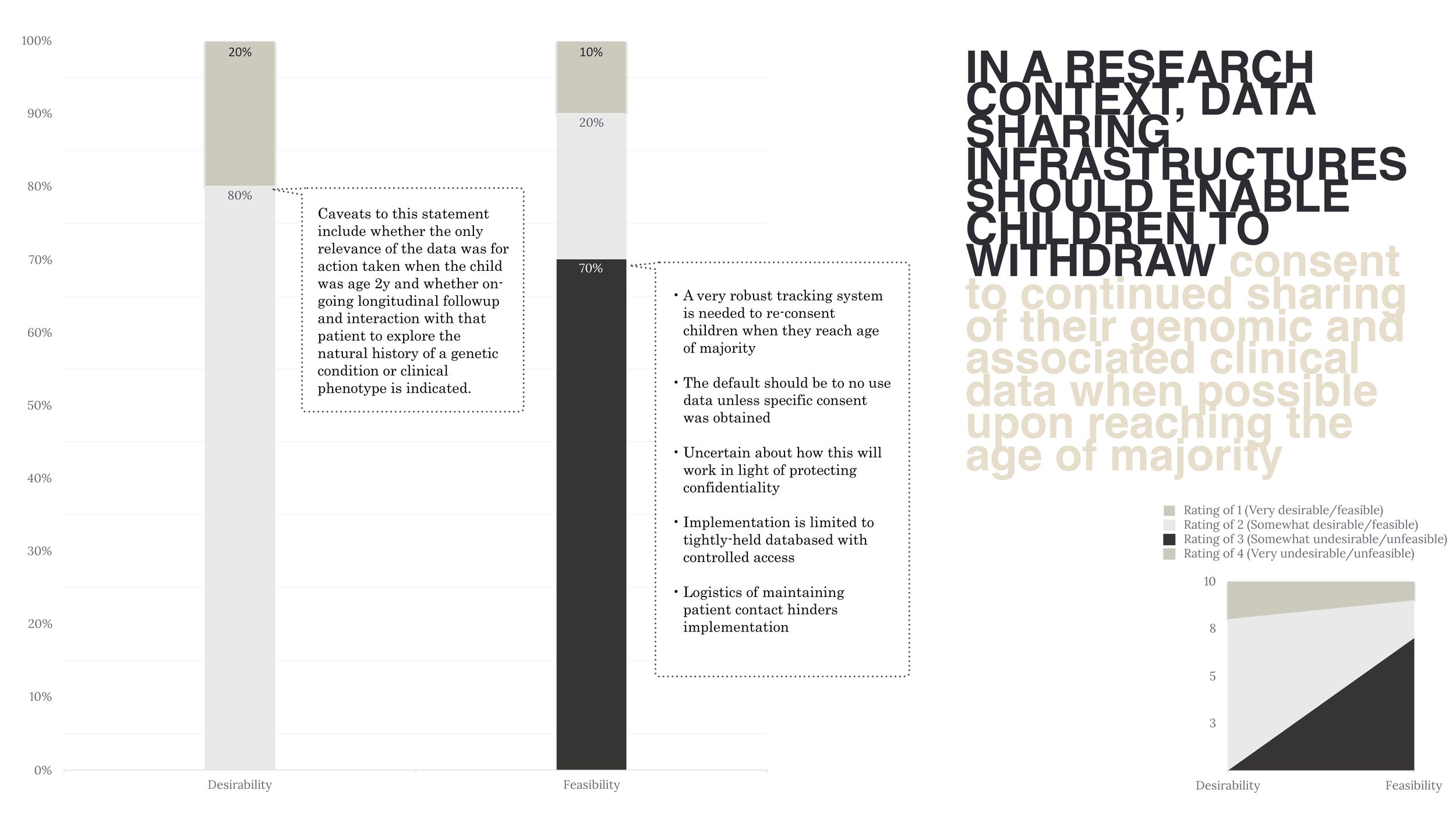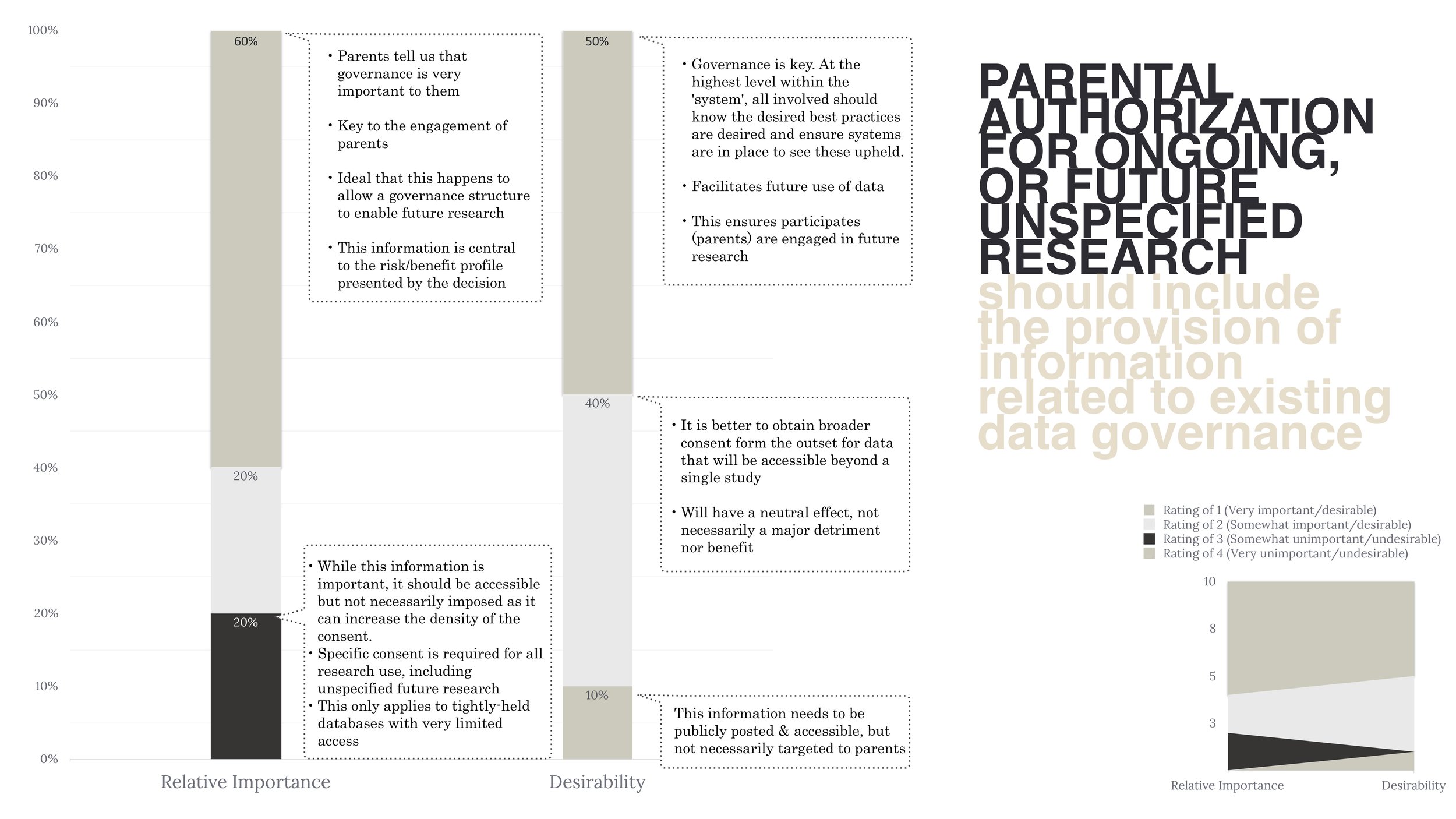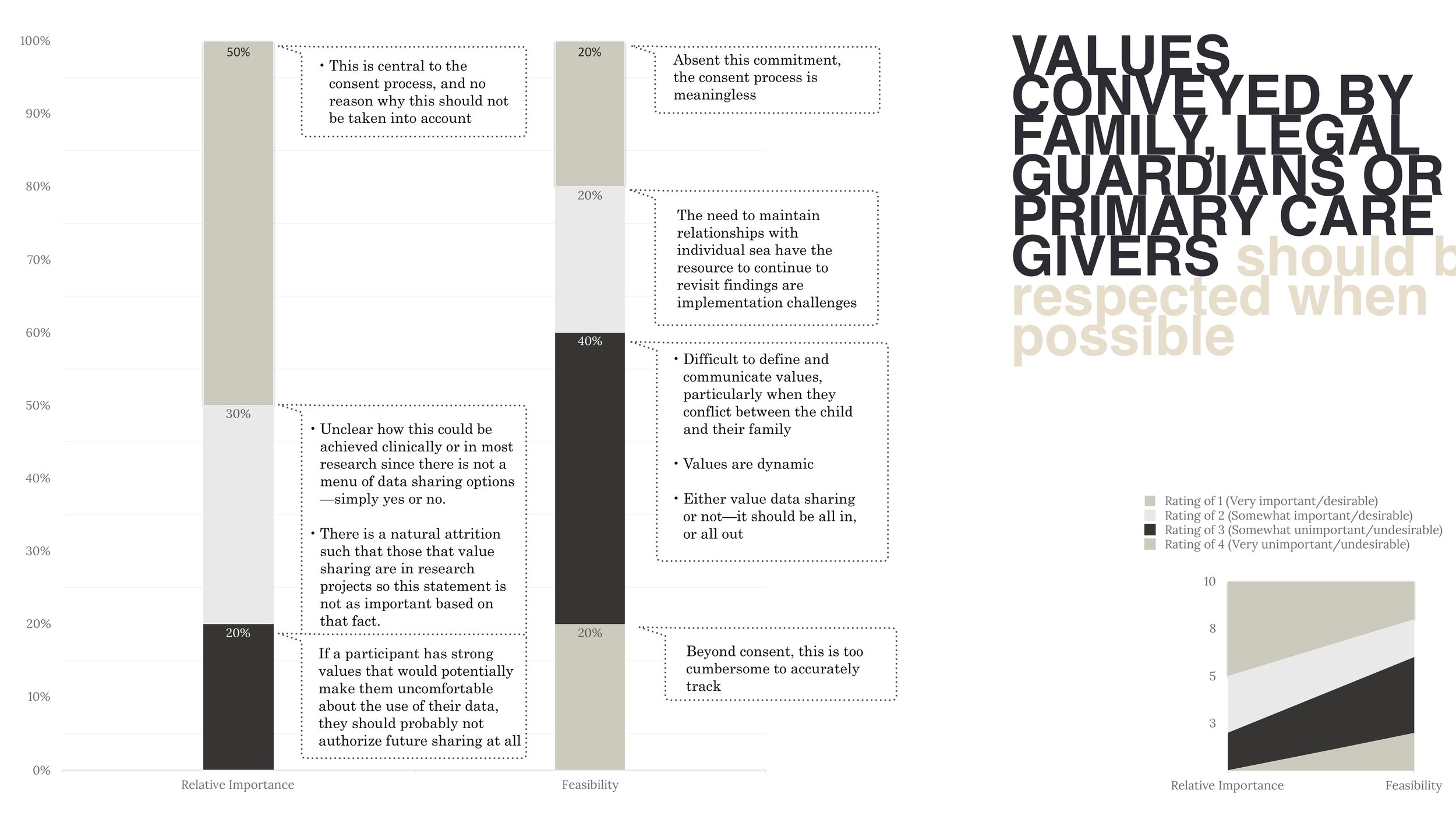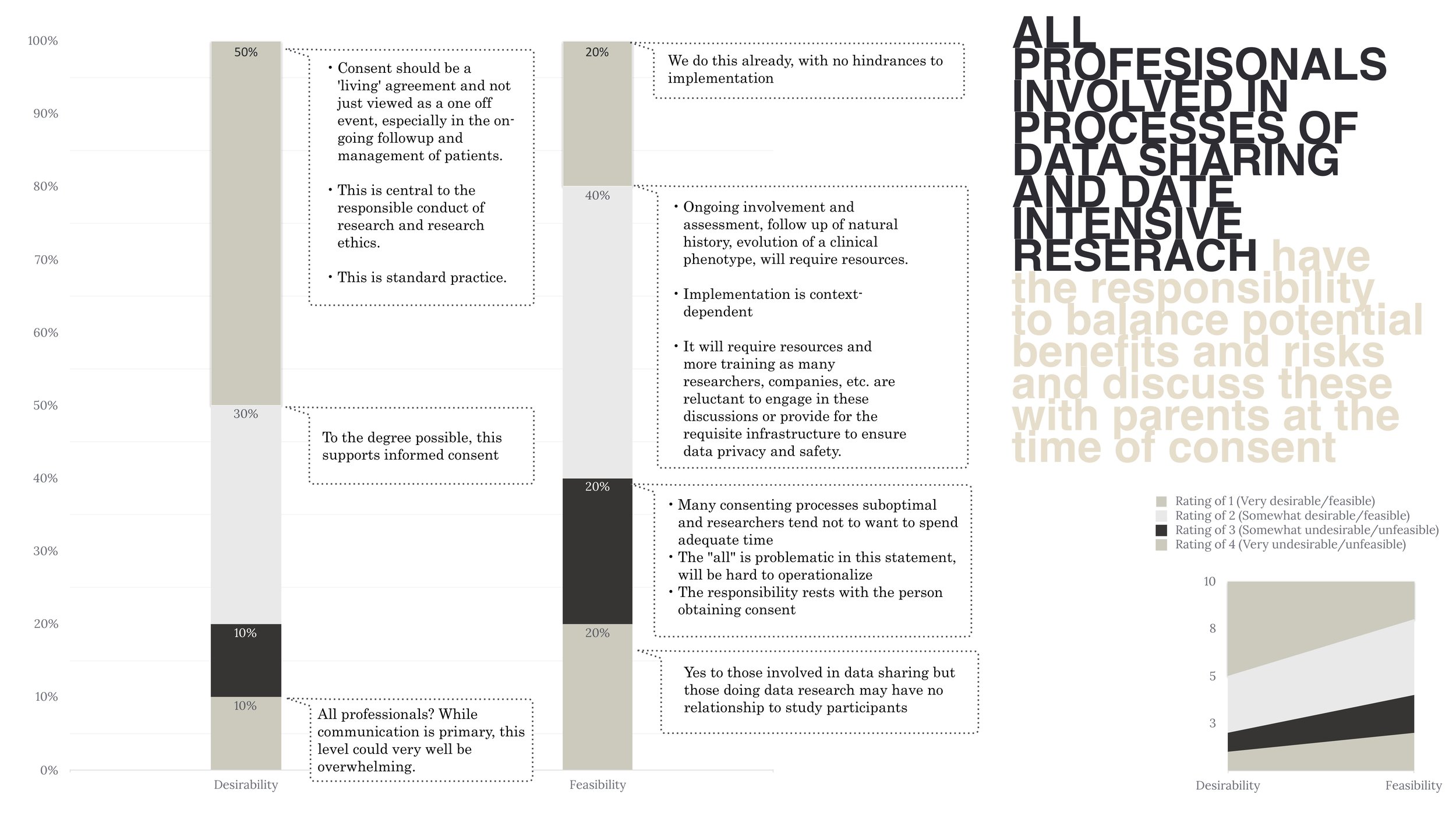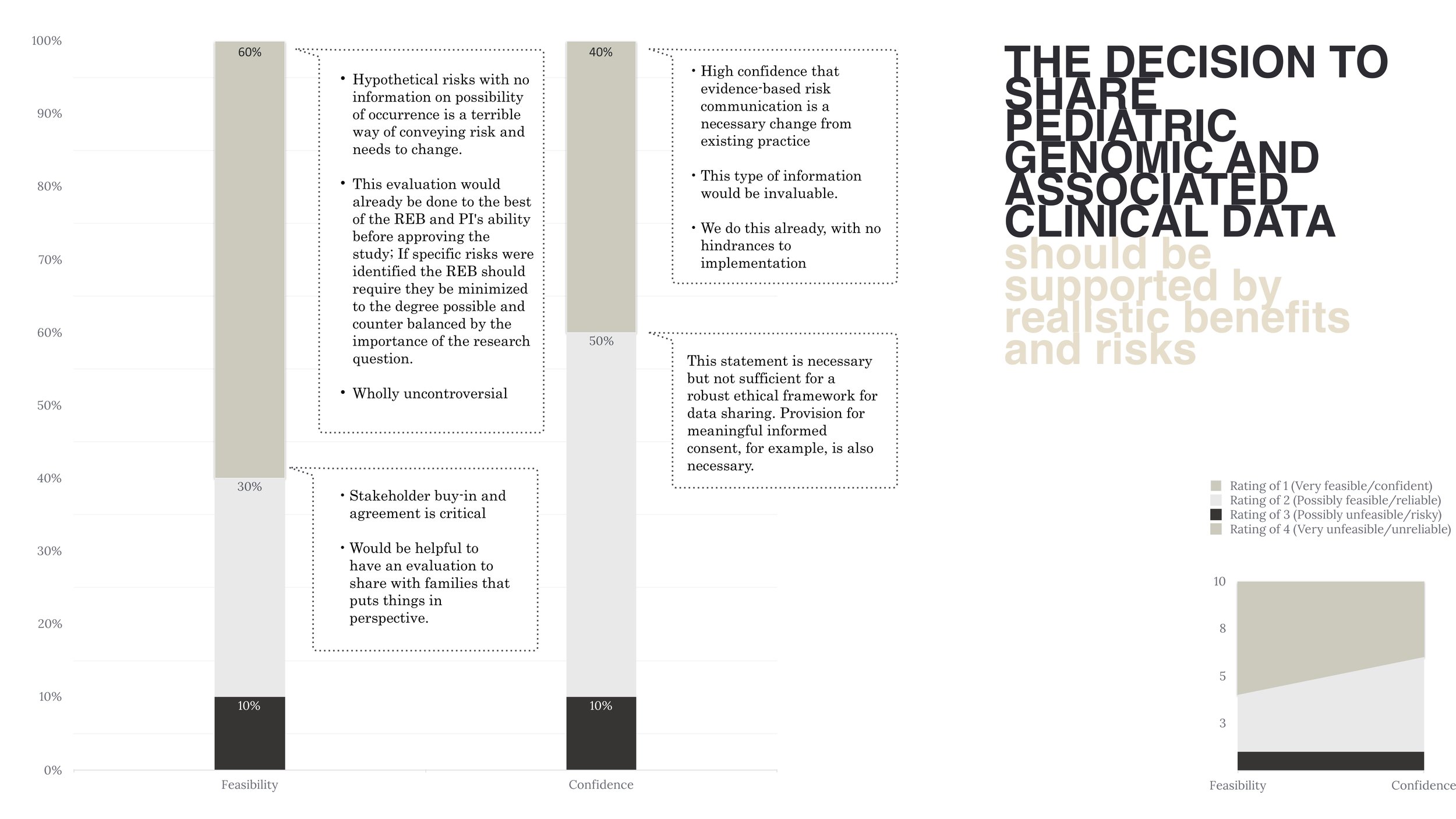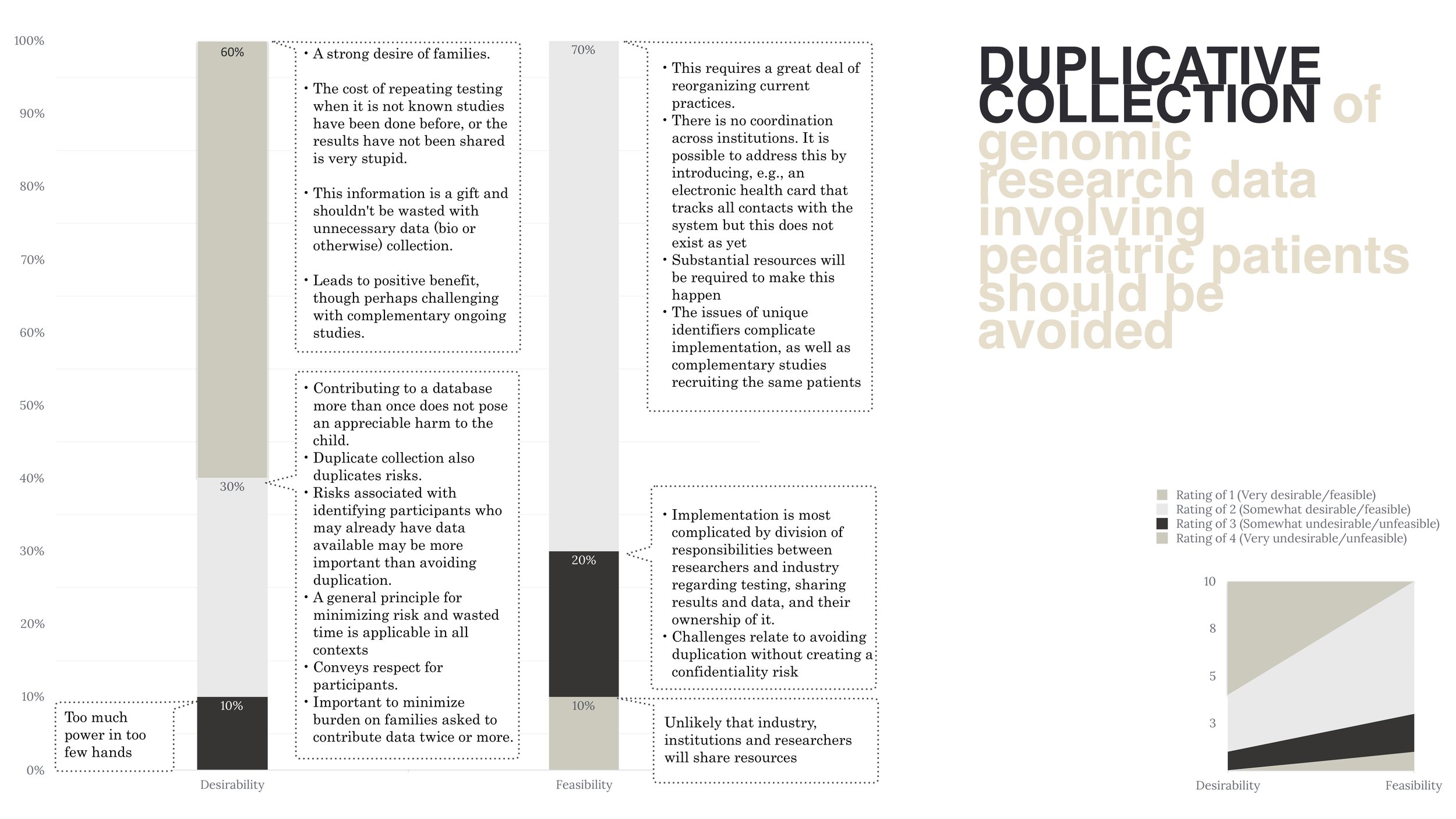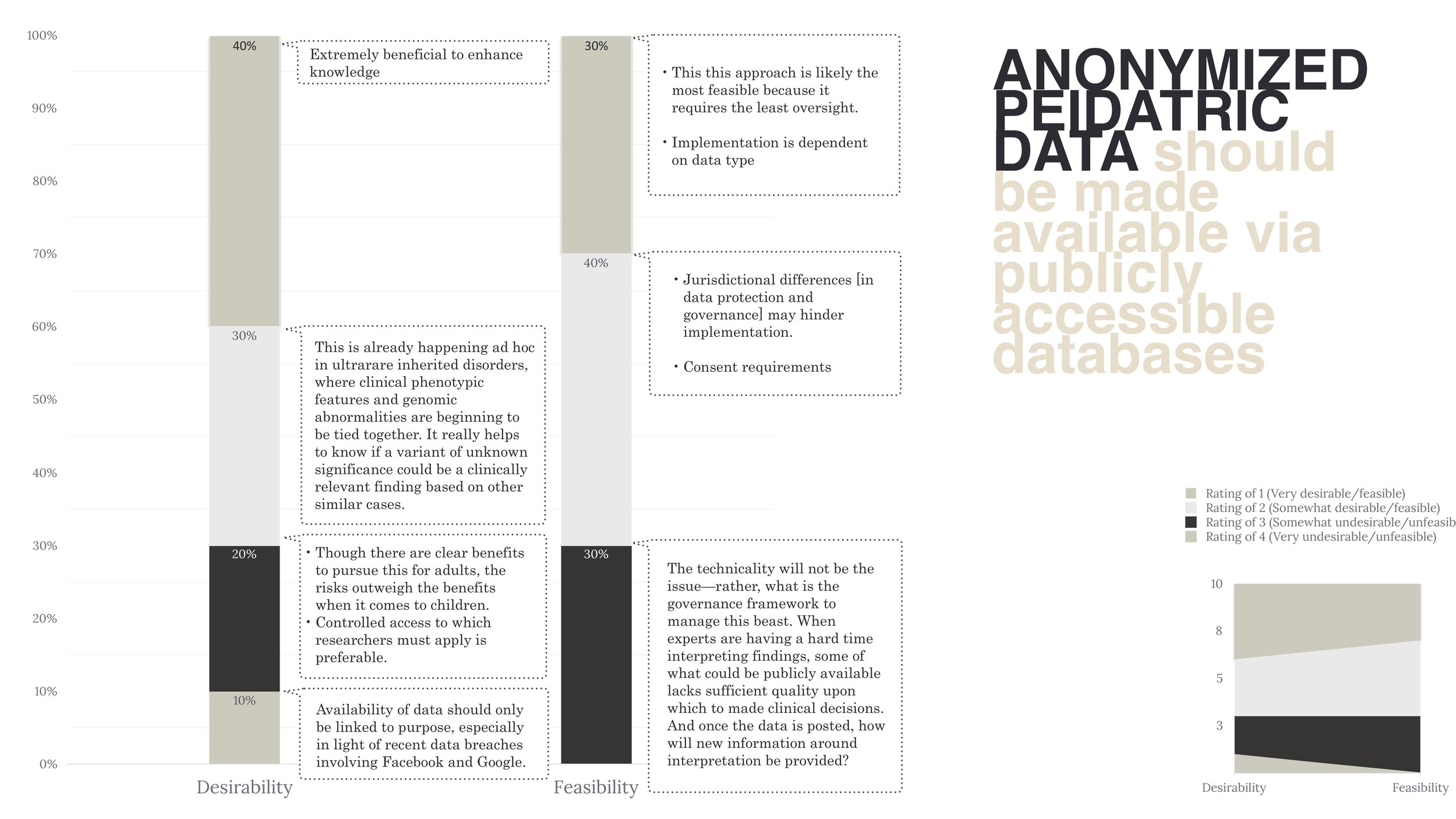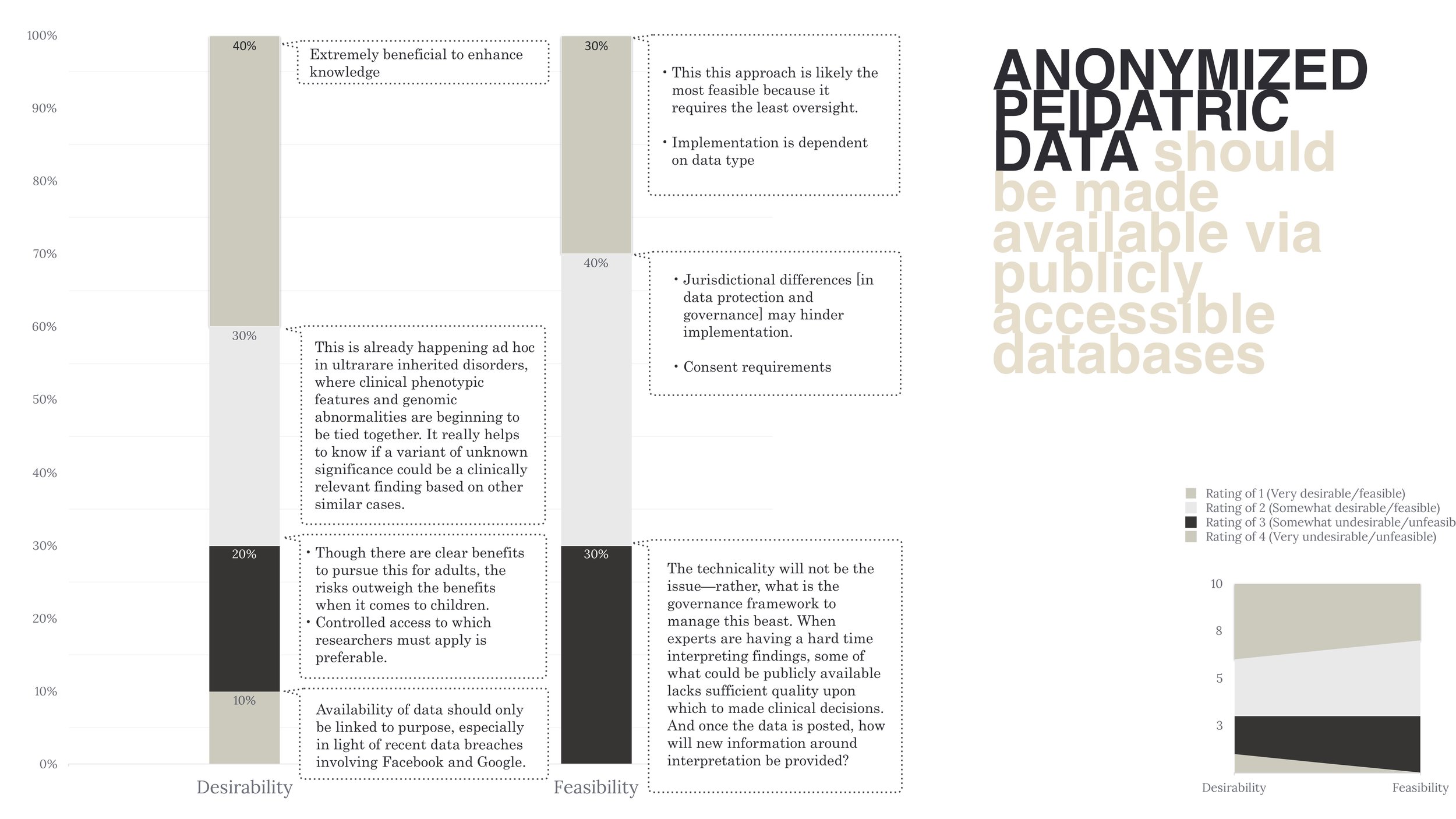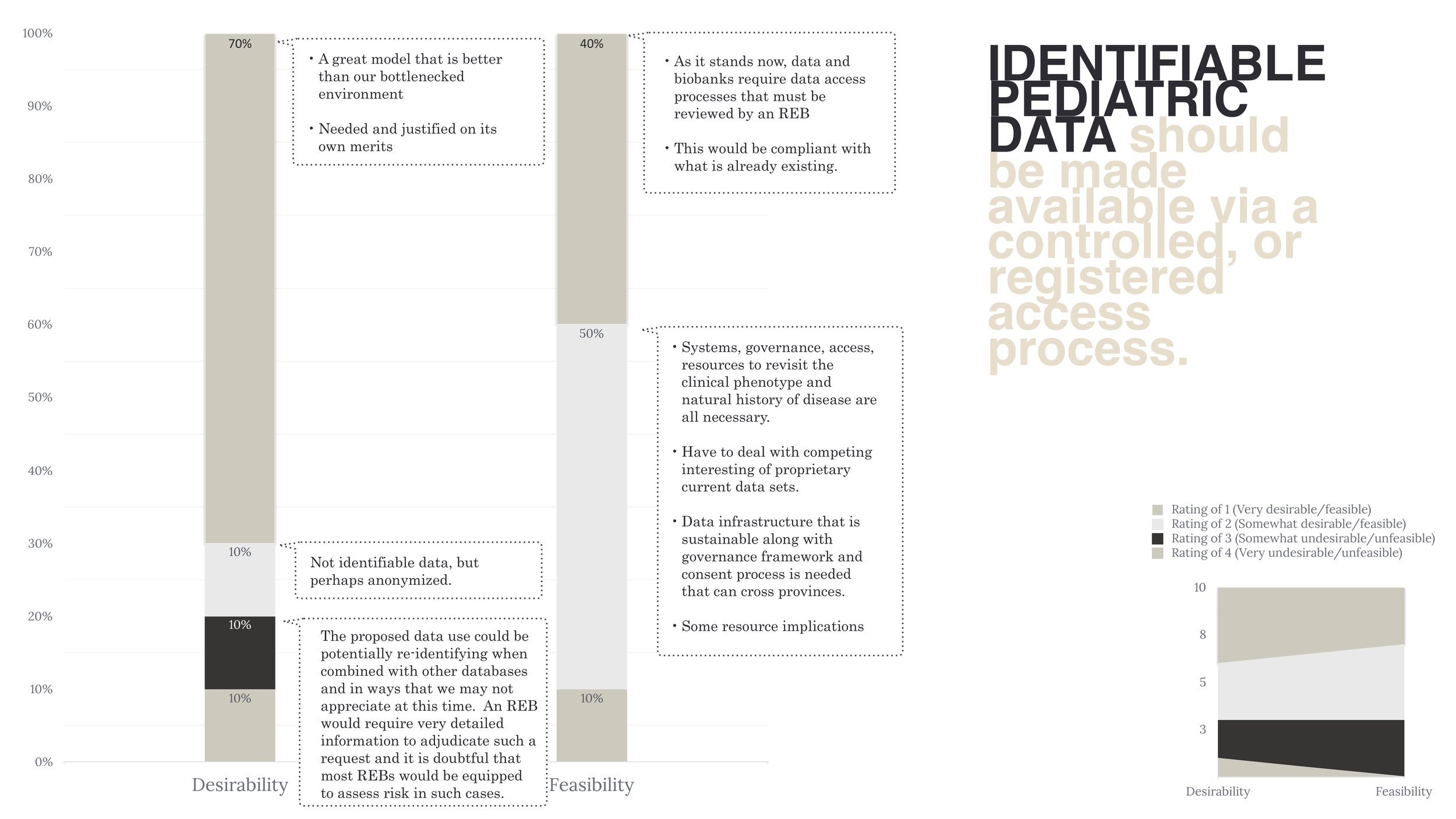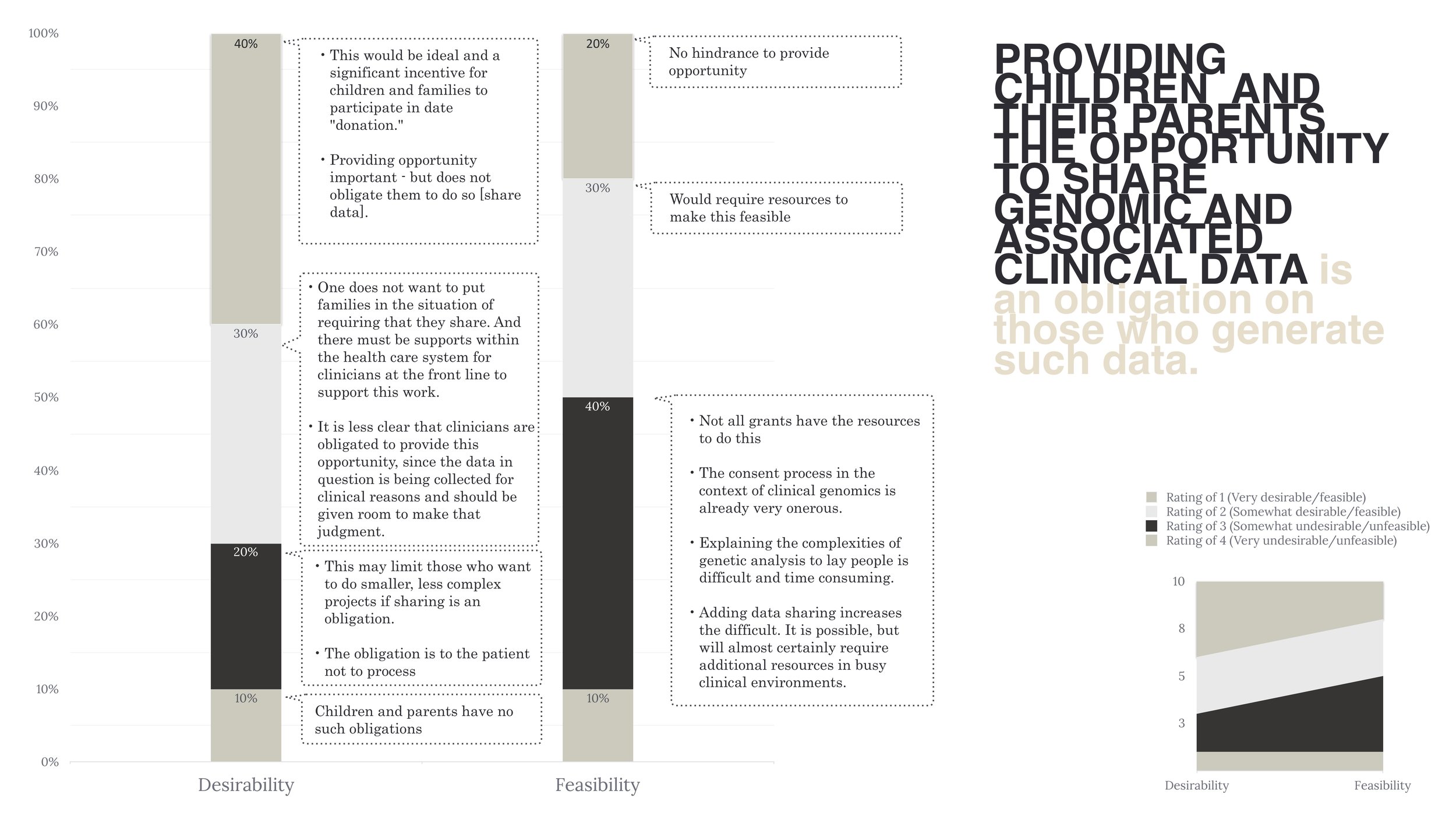Round 1
Stakeholder perspectives (e.g. researcher, parent, patient advocate, policy maker, or research ethics review board member) were solicited in the Round 1 of the Policy delphi aimed at validating a Canadian policy framework that identifies the ethical, legal, social and scientific priorities necessary for sharing pediatric genomic and associated clinical data. Round 1 of the policy Delphi involved evaluating 12 prospective policy statements to support best practices for responsible data sharing involving children. Respondents evaluated each statement on 2 of 4 factors: desirability, feasibility, relative importance and confidence. The results for each statement are provided below, along with the qualitative rationales supporting each statement.
Round 2
Based on the results analyzed from Round 1, Round 2 of the policy Delphi involved the following:
Re-assessment of 6 Polarized Statements
Six individual statements indicated some degree of polarization and/or lack of consensus based on a combined analysis of the group's ratings and qualitative responses. Participants were asked to review the group's responses to these six statements and re-rate them (if applicable).
2. Assessing 4 Amendments
Four amendments to the original KIDS Framework were proposed in Round 1, which participants were asked to adopt or reject.
3. Evaluating 1 new statement
One additional statement was proposed during Round 1. Participants were asked to rate the proposed statement on the basis of Desirability and Feasibility, and decide on its formal inclusion in the overall KIDS Framework.
Round 3
Based on the results analyzed from Round 2, the third and final round involved:
1. Qualifying the relationships between mechanisms of data access, oversight and benefits/risks for sharing irretrievably delinked data e.g. anonymized
Individual ratings and qualitative responses indicated low consensus and strong polarization on the desirability of sharing irretrievably delinked i.e. anonymized data and its appropriate terms of access. You will be asked to review the group's responses, and qualify your own views on how the ability to irretrievably delink data influences (if at all) your ethical-legal considerations for access and governance.
2. Qualifying the relationships between mechanisms of data access, oversight and benefits/risks for sharing coded data
Individual ratings and qualitative responses indicated low consensus and moderate polarization on the desirability of sharing coded data and its appropriate terms of access. You will be asked to review the group's responses, and qualify your own views on how coding pediatric data influences (if at all) your ethical-legal considerations for access and governance.
3. Assessing roles and responsibilities
One statement indicated considerable divergence on the entities responsible for providing children and parents the opportunity to share their data. You will be asked to review the group's responses, and qualify your views on what roles (if any) various stakeholders have in providing this opportunity.

